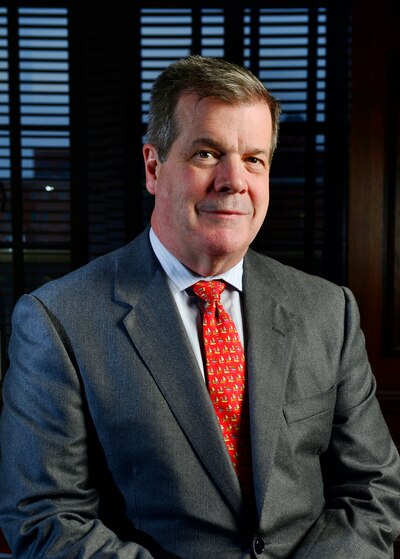For a period in 2008, Nashville Mayor Karl Dean appeared poised to take almost complete control of the city’s schools, allowing him to handpick school board members and the superintendent. Due to timing and student achievement gains, that didn’t come to pass — but Dean has had a huge impact on the city’s schools anyway.
In August, Nashville will elect a new mayor. Officially, he or she will be responsible for how much money the city allots to Metropolitan Nashville Public Schools. Unofficially, the city’s new leader will have a platform from which to direct the schools and community, possibly in an entirely different direction than the course taken by Dean, who focused primarily on expanding Nashville’s charter school sector.
“The mayor has a bully pulpit from which to talk about education,” said Pearl Sims, who worked in the mayor’s office in the 1990s, when Phil Bredesen was mayor, and is now a professor at Lipscomb University’s civic leadership institute. “He or she can have really the power to build strong relations with the community and community providers.”
Through words alone, the mayor can reframe the educational conversation in the state’s second largest school system. During the 1950s, Mayor Ben West advocated for the end of de jure desegregation in Nashville’s schools. Most recently, Dean has been a strong proponent of charter schools and of Teach for America, which places elite college graduates in teaching positions in low-income neighborhoods.
One means of starting conversations is by creating task forces. Wendy Tucker, Dean’s education advisor and a member of the State Board of Education, believes the outgoing mayor’s crowning educational achievement is not his work with charter schools, but a set of recommendations around special education that came out of a task force he convened. The recommendations were implemented later by the school system.
"The mayor has a bully pulpit from which to talk about education."
Pearl Sims, Lipscomb University civic leadership institute
Metro Nashville Schools used to have almost exclusively self-contained special education classes, meaning that, despite research suggesting that the practice isn’t ideal, most special education students were cloistered in separate classes from their peers. Based on recommendations from the task force, the district moved to integrate special education students into mainstream classrooms.
“Because of the work of the task force and his leadership, the district basically got rid of the vast majority of those classes,” said Tucker, who is also the parent of a special education student. “That made a huge difference in the lives of students.”
Historically, Nashville mayors also have had an indirect impact on how much money the district gets from the state. Bill Purcell, Dean’s predecessor, often testified to the Tennessee legislature about the need for more school funding. During his tenure, the legislature passed BEP 2.0, a revised state funding formula that put significantly more money in district coffers.
Since then, the state again has fallen behind on funding. Nashville’s school board has ruled out a lawsuit against the state, but board members wouldn’t mind the next mayor going directly to lawmakers to plead the case for more funds.
“The mayor could beat that drum loudly,” says Will Pinkston, a board member who also advised Bredesen on educational issues during his subsequent governorship.

Mayors’ words can be especially potent when paired with money. As mayor, Bredesen had his hand in every Nashville classroom when he raised money for the “core curriculum,” which has no relation to the Common Core standards and focuses on specific academic skills designed to avoid gaps in basic knowledge. That curriculum was gutted after Bredesen left office, however.
Dean’s major education initiatives — starting a charter school incubator that has brought seven charters to Nashville and establishing a relationship with Teach for America, which has about 200 corps members in 70 Nashville schools and 480 alumni in the area — will far outlast his tenure.
The new mayor also will be paired with a new school superintendent, which the district expects to name later this month. How the mayor navigates that relationship will impact school system policy.
Jesse Register, who was Nashville’s superintendent until his retirement from the job in June, sat down with Dean at least once a month to talk about the state of the city’s schools. Register said the two often had different views on education policy — they notoriously clashed on charter school expansion — but that the conversations were fruitful.
“He and I haven’t agreed on everything, but that’s OK,” Register said, crediting their conversations with leading to the expansion of pre-kindergarten programs in Nashville. “The support we’ve had from Metro Council is amazing. We went through tough economic times and (Dean) kept education as a top priority.
Though it’s unlikely the next mayor will handpick school board members, Dean’s successor might be more involved in working with the district’s board of education.
Pinkston said he hopes to see more collaboration among the next mayor, the school board and the city council.
“The more we three can plan together, the more we can make the school system a better place,” Pinkston said.

